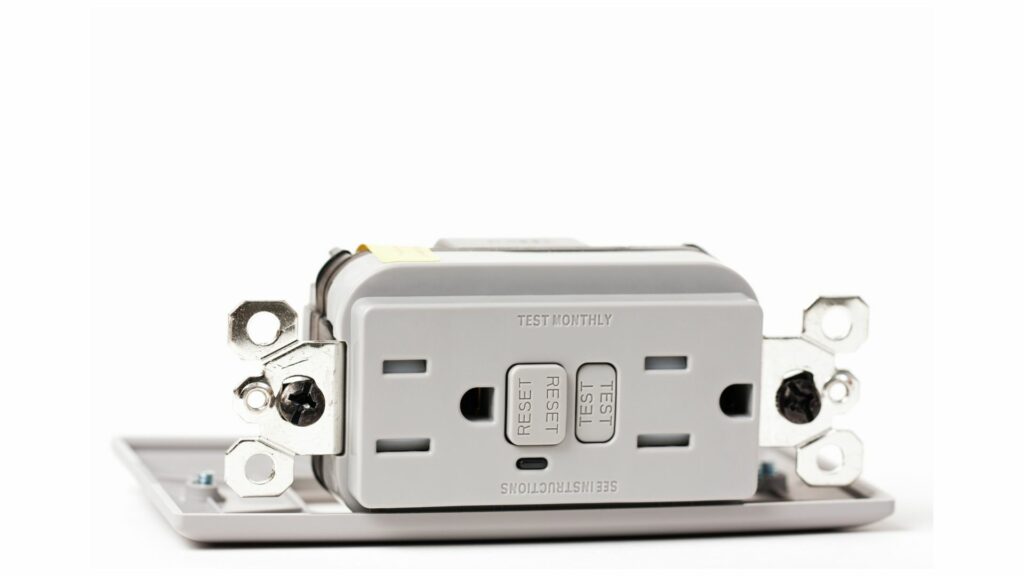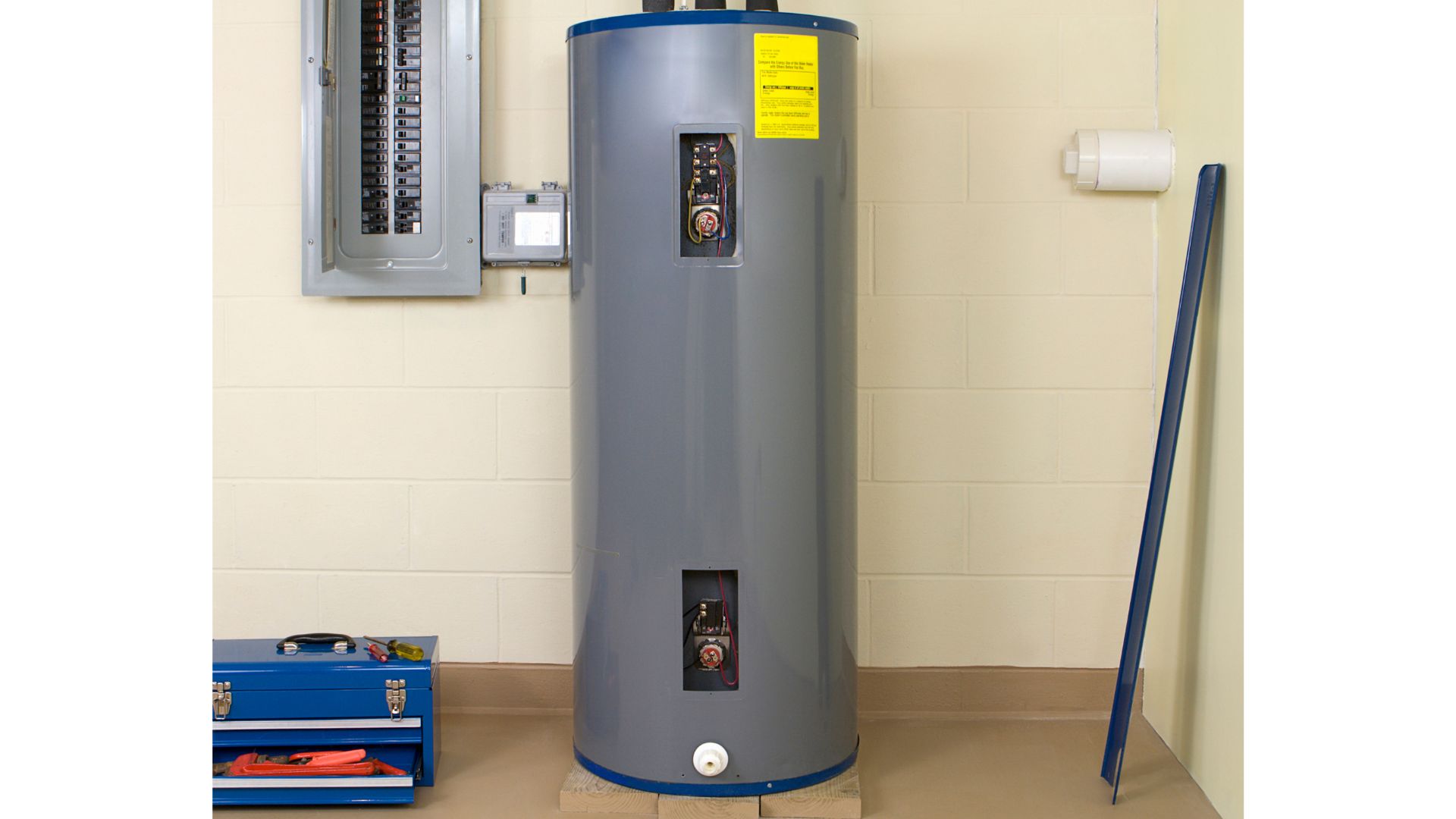Does it make sense to connect a water heater to a GFCI? What happens if you don’t? This guide will tell you.
Does Water Heater Need GFCI?
- If you place a water heater in the garage, bathroom, and basement. It needs GFCI
- The water heater doesn’t need GFCI if it is hardwired.
- If your manufacturer discourages you to use GFCI, you don’t need GFCI.
Things To Consider Before Using GFCI For Water Heater

1). Water and Electricity
Many people associate water heaters with GFCIs because the technology defends against ground faults. Ground faults occur when the current escapes a conductor to flow through the wrong medium. For instance, if you drop a dryer in a tub of water, the current will flow through the water.
The GFCI will react by tripping because the returning electricity will differ from the outgoing current. This is good for people in areas of a home that allow electronic devices and water to interact. The GFCI will prevent electrocution by cutting the power before the consumer suffers a severe shock.
With that in mind, adding GFCI technology to a water heater sounds like common sense. After all, the appliance uses electricity to raise the temperature of the water. However, I want you to realize that a water heater is not like a bathtub or a jacuzzi.
Yes, it contains water. But the consumer is not in direct contact with the water heater. In fact, most homeowners have never come into contact with their water heater.
The device is hardwired. They only ever interact with the switch. When the heater malfunctions, they call an electrician to troubleshoot the appliance. Therefore, the heater does not pose the same threat you see in kitchen, bathroom, or laundry room appliances.
You don’t hear stories of people dying because the heater failed and energized the water flowing out of the shower. This is why it is rare for local regulations to demand the use of GFCIs where water heaters are concerned.
2). Hardwired VS Plug-In
Is your device hardwired, or does it use a conventional plug and outlet? Even if your local regulations demand the use of GFCIs, you can bypass them by hardwiring the water heater. This doesn’t work every time.
Some electric codes recommend GFCIs even when the appliance is hardwired. But if yours don’t, hardwire the device to escape the GFCI regulations in your region.
3). Where is the water heater located?
This is probably your biggest concern. It is also the most confusing aspect of this topic. NEC shows the locations in a home that require GFCI protection.
Those locations include the garage, bathrooms, and basements. Every device in those areas requires GFCI protection. But this introduces more questions than answers. The NEC doesn’t mandate the use of GFCIs for heaters.
However, it doesn’t exempt them either. Your response to this puzzle will depend on the contractor you hire. Some electricians don’t bother with GFCIs regardless of the heater’s location.
They treat heaters like refrigerators. Refrigerators have a reputation for tripping GFCIs. As such, homeowners prefer to connect them to ordinary outlets even when they position these items in locations like the garage that require GFCI protection.
But you will find plenty of contractors who agree that a GFCI should protect a water heater in a bathroom or garage. Let the experts decide. They have a better grasp of the law.
4). What does your manufacturer say?
Some manuals discourage you from connecting the heater to a GFCI device. This should give you some pause.
You are better off listening to the manufacturer. If you disobey them and things go wrong, they will void your warranty. However, manufacturers typically explain why GFCIs are a bad idea. People are hesitant to obey their instructions when they give commands without providing credible reasons why a GFCI is dangerous.
At the end of the day, GFCIs cannot harm your heater. They can only inconvenience you by tripping at the wrong time. Otherwise, they are passive. They are not a threat to your safety.
5). Gas VS Electric Water Heater
If you think water heaters are dangerous because they might bring water into contact with significant amounts of electricity, but you don’t want to experiment with GFCI technology, you should opt for gas heaters.
A gas heater uses small amounts of current for the controls and ignition. Ground faults are less of a threat where gas heaters are concerned.
Water Heater GFCI Code
The NEC doesn’t mandate the use of GFCI technology for water heaters. However, the code lists several locations in a home whose outlets require GFCI technology. If you have a water heater in one or more of those locations, you should think about plugging the appliance into a GFCI outlet.
A heater in a bathroom that plugs into an outlet within three meters of water will probably use a GFCI.
The term ‘Probably’ applies here because some contractors disagree with that interpretation. This is where the problem lies. You can’t make this decision yourself. You need a professional electrician to interpret the code for you.
Otherwise, you risk attracting hefty penalties. Where possible, talk to a local inspector and find out what they need from you. The inspector will base their interpretation on the local code because it supersedes the NEC’s regulations.
What Size GFCI Should I Need For Water Heater?

The GFCI is supposed to replace an outlet. Therefore, the size of the GFCI should match the size of the outlet you want to replace.
This is also true for hardwired appliances. Some homeowners think GFCI technology is not an option once you hard-wire a heater, but that is not true. You can install a GFCI breaker in the panel.
The GFCI breaker will apply GFCI protection to every device on the circuit. However, many consumers don’t see the point of using GFCI breakers to protect one device, even if that device is a water heater.
A GFCI breaker makes more sense when you have multiple items that require GFCI protection. If you want one for your heater, the size of the GFCI breaker will match the size of the ordinary breaker you want to replace.
Water Heater Tripping GFCI – Why?
Water heaters can trip GFCIs for one or more of the following reasons:
1). Leak
You have a ground fault. GFCIs react to ground faults. These devices will respond to a significant current leak. This means the heater has a malfunction, probably a loose connection somewhere.
You cannot troubleshoot the heater because the appliance is too dangerous. You need a qualified professional to check the heating element and wiring. This is true for gas and electric heaters.
Homeowners don’t expect gas heaters to interfere with the GFCI. But a defect in the thermostat, control circuitry, or vent fan can trip the GFCI breaker or outlet.
2). Moisture
GFCI receptacles are vulnerable to moisture, especially in regions with high humidity. Moisture is dangerous because it introduces an electrocution hazard. Incessant tripping is the best outcome.
3). Defective GFCI
If you can’t identify any faults in the heater, the GFCI is the problem. GFCIs can develop malfunctions for various reasons. Some have factory defects. Others wear out over time. You also have GFCIs that trip because of damage they incurred from mistreatment.
How To Fix It?
- Check the receptacle for moisture. Use a blow dryer to dry the GFCI before you reset it. You can perform this task without a professional. Although, you should hire an electrician to check your work if the GFCI continues to trip.
- Replace old, worn-out GFCIs. GFCIs have sensitive circuitry. Fixing them isn’t an option. You won’t trust them to protect you from ground faults. Even if the GFCI is new, replace it if you’ve failed to identify the source of the tripping. This will give you peace of mind.
- Hire a professional to troubleshoot the heater. You can inspect the power cord if you take the relevant precautions. That includes cutting the power and wearing gloves. However, don’t open the heater unless you have a license. Your local authorities may penalize you if something goes wrong.
- Search for loose wiring on the circuit, especially if the GFC is a breaker. GFCIs don’t trip because of overloads. They will respond to a current leak. Other appliances on the circuit can cause a GFCI breaker to trip. Identify and fix them.
Related Post:

